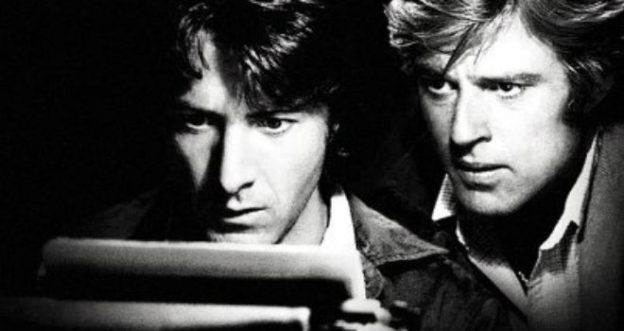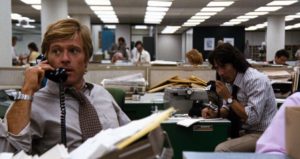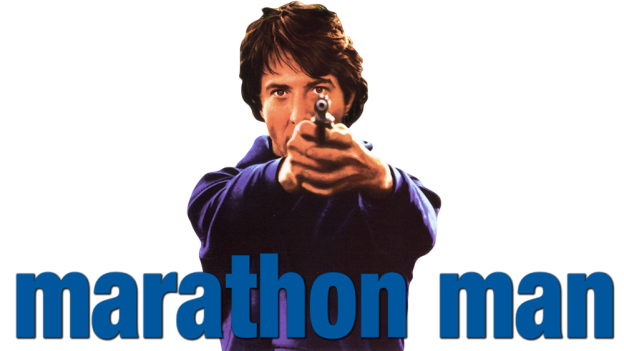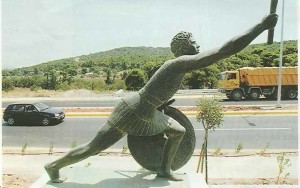I have been a police reporter for 15 years, and a film reporter for another decade.
So I feel comfortable committing the following double heresy:
All the President’s Men is a lousy movie.
As a book, it’s poetry. As a story, it’s the gold standard for every aspiring reporter.
But, strictly from an entertainment perspective, the 1976 Oscar winner for Best Picture — and five other Academy Awards — cinematically sucks.
I realized this last month, when HBO — perhaps in a plea for substantial political journalism — made it one of their feature films for the week spanning Election Day.
At least a dozen times, the movie has unspooled before me. I know the story, the characters and the circumstances inside out. I even recognized the lobby, newsroom and parking lot, as The Washington Post was my old employer, Bob Woodward my Sunday editor.
So on my most recent viewing, I decided to watch again. This time with intensified focus. Even played it with closed captioning, to absorb the nuance of the script.
No matter. It still blows.
For one, there are simply too many characters to follow. Just try keeping up with the names of more than three dozen actors with screen credits, from political wonks to Post editors. Unless you’re a journalism major in college, you likely don’t know the name Harry Rosenfeld (He was the Post’s city editor an a key figure in the scandal.). By the second hour, you need a score card and flow chart to keep track of the characters.
Second: we never meet the mysterious character behind the film, Deep Throat. The real life character, Robert Felt, was only identified posthumously.
Now imagine trying this strategy in any other film. Consider the pitch:
Producer: “So we’ve got this shadowy figure, who only meets Robert Redford in darkened garages after secretly signaling him he has found new evidence.”
Exec: “I love it. Who does it turn out to be?
Producer: “We don’t know, so we never reveal.”
Exec: “The door is that way.”
Or another scene, in which Carl Bernstein confirms his story with a source over the phone.
Producer: “It’s even got a 10-second countdown. Or count-up — the reporter is counting to ten.”
Exec: “Beautiful. What happens at 10?”
Producer: “Nothing. He confirms the story by not hanging up.”
Click
One thing it does get right: the acrobatics required to handle a telephone while trying to write down what people say. How many collective hours, I wonder, were wasted in old films of characters dialing a rotary phone?
It’s easy to see why APM was an unmitigated success. For the public, it was a reminder of what a healthy press looks like in action. And they could drool over Redford.
For critics, Alan Paluka’s drama took painstaking measures to get the details right, and it did (however stultifying those details were). Good films raise the art of its subject matter.
And who in the mainstream press was going to knock it? Sure, the meetings between Deep Throat and Woodward were pure fiction. But when’s the last time reporters were portrayed by acting icons? Hollywood characterizations of reporters is typically negative when the journalist is a minor character. But positive when they are central characters.
Finally (spoiler alert): the finale. APM concludes with no arrest, no showdown of powers. Simply a teletype, clacking the news that Richard Nixon resigned from office. Roll credits.
It was a wholly appropriate finale, one that perhaps was as spot-on as any based-on-a-true-story premise.
But ending a narrative with a few lines of text rarely makes for compelling drama.
See?




